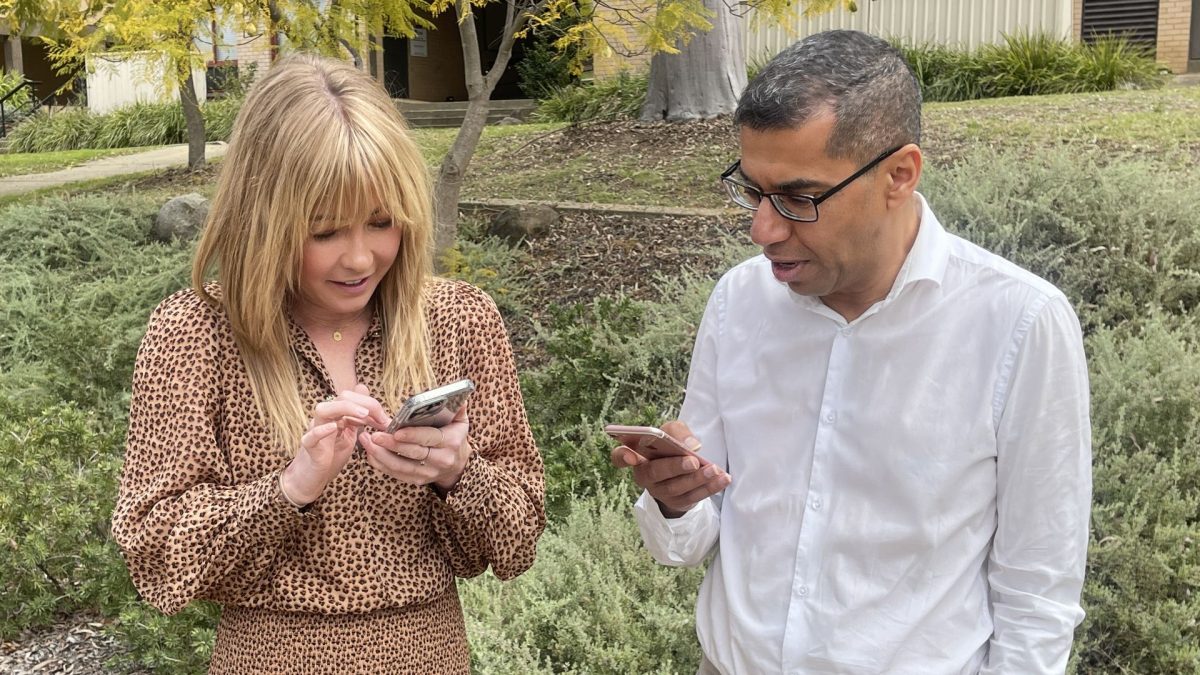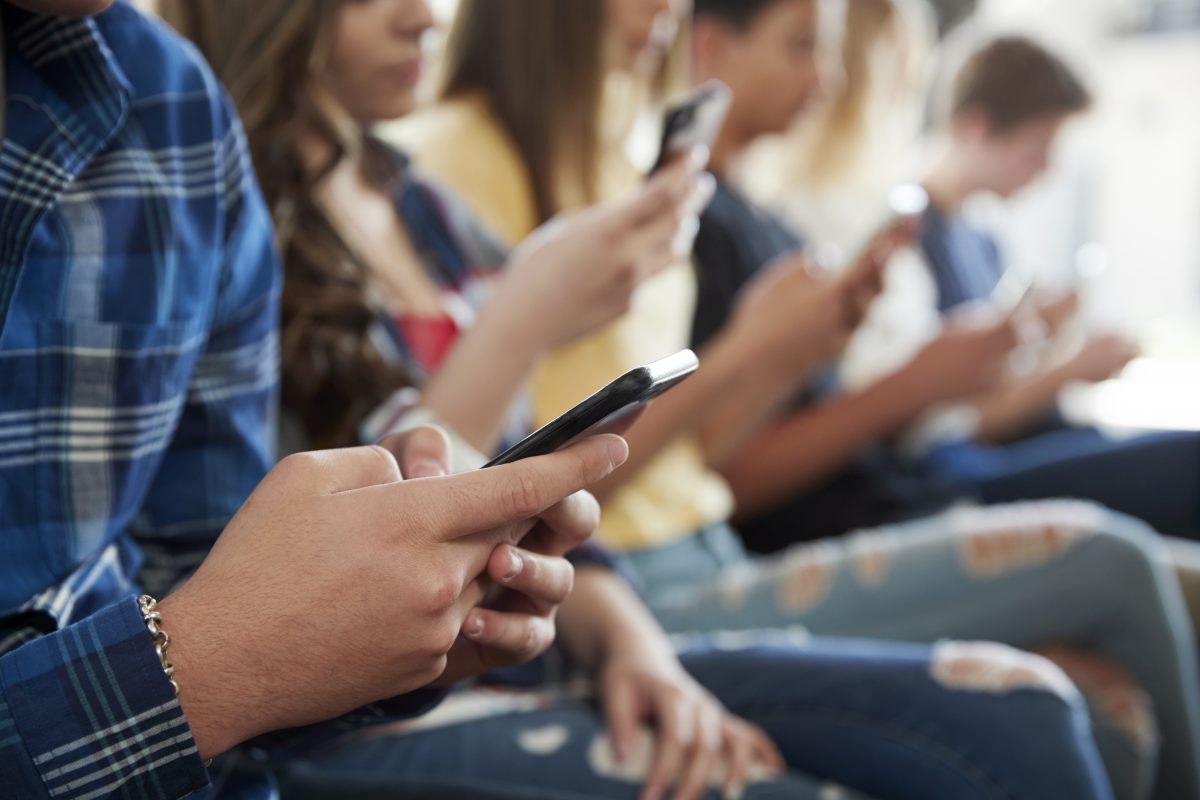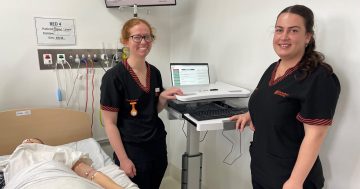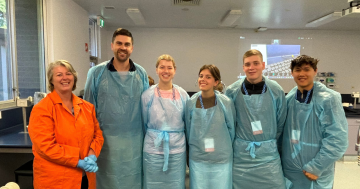
Associate Professor Yeslam Al-Saggaf and Dr Rachael Hogg from CSU are looking at the impact of ‘phubbing’. Photo: CSU.
You may not know it, but you are likely to be guilty of ‘phubbing’ a friend or family member from time to time.
Professor Yeslam Al-Saggaf says it could be damaging your relationships.
“Phubbing is the act of looking at your smartphone while you’re in a face-to-face conversation with someone,” he explains.
Together with Dr Rachael Hogg, the pair from CSU’s School of Computing, Mathematics and Engineering are investigating the use of smartphones in social situations.
“It’s so common now that people don’t even know that they’re doing it,” he says.
“You’re having a chat with someone in person, and suddenly they pick up the phone and start texting or scrolling through the feed and so you just have to do the same yourself.
“People are beginning to find it hard to concentrate even on a conversation, they get bored so quick and feel they need something else to move their attention to.”
The term phubbing is a portmanteau of the words phone and snubbing, and according to Professor Al-Saggaf, it can have serious impact on a person’s wellbeing.
“Those who are experiencing being phubbed say they feel lonely, they experience anxiety, it can lead to depression, it can lower their satisfaction with their life and it can lead to addiction,” he says.
“People don’t think that just putting your phone in front of your face during a conversation can lead to all these things.”

Smartphones are damaging our ability to hold face-to-face conversations. Photo: File.
Previous studies have shown that this is having a profound effect on children and Professor Al-Saggaf says it begins with behaviour modelled by adults.
“We noticed that in the case of children, when parents ignore them in favour of the smartphone, they then become addicted themselves,” he explains.
“They can then also engage in cyberbullying and they become aggressive towards others as well.”
Research shows that teenagers are particularly susceptible to technology addiction and their development of interpersonal skills is impaired.
“Face-to-face conversations are very difficult because they are not scripted,” says Professor Al-Saggaf.
“People with too much dependence on technology prefer the online space because they have more control over the conversation but they begin to lose the ability to engage in spontaneous conversation.
“It’s what Sherry Turkle called being ‘alone together’.”
American Sherry Turkle is a professor of social psychology at the Massachusetts Institute of Technology, and has long advocated for ‘reclaiming conversation’.
In her books, she examines the impact of screens on our real-world lives and explores the consequences of our addiction to constant digital stimulus and fractured and distracted family interactions.
“Technology is seductive when what it offers meets our human vulnerabilities. And as it turns out, we are very vulnerable indeed. We are lonely but fearful of intimacy,” she writes in Alone Together: Why We Expect More From Technology and Less from Each Other.
“Digital connections and the sociable robot may offer the illusion of companionship without the demands of friendship. Our networked life allows us to hide from each other, even as we are tethered to each other. We’d rather text than talk.”
Her solution – people need to talk more to each other.
Professor Al-Saggaf says they are looking for participants in an online survey to share their own experiences.
“This research is important not only because it will raise awareness about the detrimental effects associated with use of smartphones in social situations but also because it will consider effective strategies for addressing this problem,” he says.
The anonymous survey will cover two categories – parents of one or more smartphone users and smartphone users aged 18-24 years.
You can learn more about the ‘phubbing’ research project or participate here.














